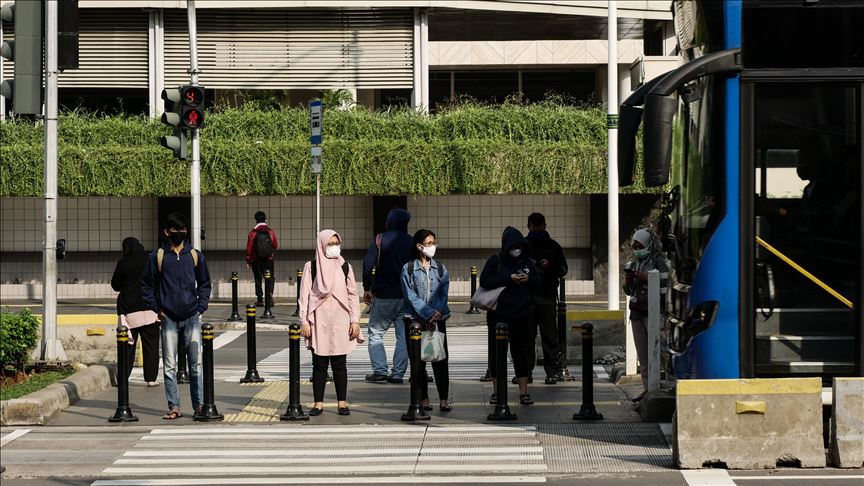Jakarta to ban single-use plastic bags starting July 1
Shopping centers, supermarkets must provide environmentally friendly shopping bag, according to new obligation

JAKARTA
The Indonesian capital of Jakarta will officially implement a ban on single-use plastic bags effective on July 1.
“The managers or administrators should require all tenants and business owners in shopping centers, supermarkets and traditional market to provide environmentally friendly shopping bags,” said the Head of Environmental Agency of Jakarta Province Andono Warih on Thursday.
The new obligation refers to the government's 2019 Regulation regarding The Obligation to Use Environmentally Friendly Shopping Bags, including reusable shopping bags made from any ingredients -- such as dry leaves, paper, textile, polyester, and its derivatives, or even recycled materials.
The shopping bags should also have adequate thickness, designed to be used multiple times, as well as being recyclable.
“Managers and administrators who violate this regulation will be subject to sanctions in the form of written warnings, fines, license suspension, or revocation of business licenses,” he added.
In addition, the Jakarta Provincial Government also asked online stores and marketplaces to reduce the use of single-use plastic bag, especially through their sales partners.
There are around four other cities in the country who have implemented similar regulations way ahead of Jakarta, including Banjarmasin, Balikpapan, Bogor and Bali.
Indonesia is the world’s second largest producer of plastic waste after China.
According to the Indonesian Institute of Sciences (LIPI), 0.27 to 0.9 million tons of waste enters the oceans every year through river flows containing plastic bags and polystyrene foam.
The Southeast Asian country is committed to reducing waste through reduction, reuse and recycling -- 3R: Reduce, Reuse and Recycle -- up to 30% by 2025. The government also targets a reduction of 70% plastic waste by 2025.
Surge of plastic waste amid pandemic
A recent study by LIPI shows there is a significant rise in plastic waste quantities since the announcement of large-scale social restrictions on March 16.
Based on a survey held in April 20-May 5, some 715 respondents revealed that during the restrictions period, they made more online purchases -- one to ten times per month -- compared to the pre-pandemic period -- one to five times per month.
But around 96% of online shopping packages are wrapped in plastic covers, bubble wrap and other packagings.
Unfortunately, only one out of two respondents said they sorted out their plastic waste to reduce environmental pollution risks.
Another research from LIPI also found that 59% of the marine waste released from nine rivers in Jakarta, Bekasi, and Tangerang consists of disposable plastics that have polluted the Jakarta Bay.
* Writing by Maria Elisa Hospita from Anadolu Agency's Indonesian-language service in Jakarta.
Anadolu Agency website contains only a portion of the news stories offered to subscribers in the AA News Broadcasting System (HAS), and in summarized form. Please contact us for subscription options.


